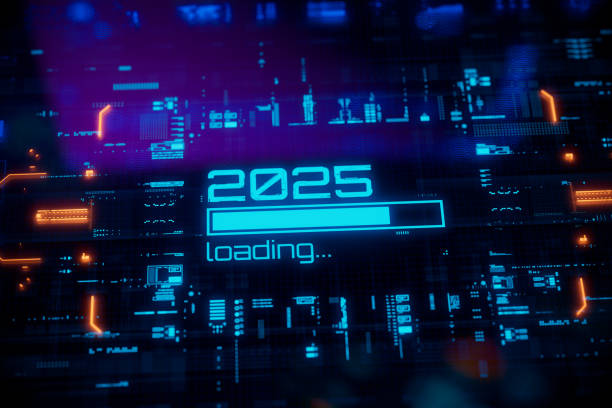As we approach 2025, technology, finance, and consumer behavior are on the cusp of transformative changes that will redefine how we interact, conduct business, and approach daily life. Zeronski’s predictions for this pivotal year offer valuable insights into the trends and forces shaping our future. This article explores the key themes in technology, finance, and consumer behavior, providing a comprehensive look at what lies ahead.
I. Technology: The Evolution of Digital Experiences
A. Artificial Intelligence and Automation
By 2025, artificial intelligence (AI) and automation will be deeply integrated into various aspects of our lives, transforming workplaces and personal environments alike. From advanced chatbots providing customer service to AI-driven analytics predicting consumer trends, businesses will leverage these technologies to enhance efficiency and personalization.
The emergence of autonomous systems, such as self-driving cars and drones, will further change transportation and logistics. These advancements promise reduced operational costs and improved safety, but they also raise important ethical and regulatory considerations.
B. The Internet of Things (IoT) Revolution
The Internet of Things (IoT) will continue to expand, connecting more devices and creating a seamless interplay between the digital and physical worlds. By 2025, smart homes equipped with interconnected appliances and security systems will become commonplace, optimizing energy use and enhancing convenience for consumers.
Moreover, businesses will harness IoT data to analyze usage patterns and improve customer offerings. As IoT technology matures, it will also face challenges related to data security and privacy that must be addressed for widespread adoption.
C. Augmented Reality (AR) and Virtual Reality (VR)
AR and VR technologies are set to revolutionize industries such as education, healthcare, and gaming. In 2025, we can expect widespread adoption of these immersive technologies, with applications ranging from virtual classrooms to enhanced training simulations for medical professionals.
The retail sector will also benefit from AR-driven experiences, allowing consumers to visualize products in their own environments before making a purchase. These innovations will enhance customer engagement and satisfaction, redefining the shopping experience.
II. Finance: The Digital Transformation of Money
A. The Rise of Decentralized Finance (DeFi)
Decentralized finance is gaining momentum, offering consumers alternatives to traditional banking services. By 2025, DeFi platforms will continue to disrupt the financial landscape, enabling peer-to-peer transactions, lending, and investment opportunities without intermediaries.
As interest in cryptocurrencies and blockchain technology grows, consumers will increasingly rely on DeFi for greater control over their finances. However, regulatory frameworks will need to evolve to ensure consumer protection and financial stability in this rapidly changing sector.
B. Fintech Innovation and Digital Banking
Fintech companies will expand their market influence, driving innovation in digital banking and payment solutions. By 2025, traditional banks will face increasing competition from agile fintech startups that offer user-friendly interfaces, lower fees, and faster transactions.
Digital wallets and contactless payment methods will become the norm, making transactions more convenient for consumers. The emphasis on personalized banking services will lead to tailored financial products that meet the unique needs of individuals and businesses.
C. Sustainability in Finance
The growing awareness of environmental issues will influence investment decisions and corporate practices by 2025. ESG (Environmental, Social, and Governance) criteria will play a significant role in guiding investments, with consumers actively seeking sustainable options.
Financial institutions will prioritize transparency and accountability, responding to consumer demand for responsible business practices. This shift towards sustainability will reshape the finance sector, encouraging long-term thinking over short-term gains.
III. Consumer Behavior: The New Paradigm
A. Experience Over Ownership
As we move into 2025, consumer behavior will increasingly favor experiences over material possessions. This trend will drive the growth of shared economy platforms, where consumers can access goods and services without the need for ownership.
Travel, entertainment, and hospitality will evolve to emphasize unique experiences, catering to consumers’ desires for personal enrichment and social connection. Brands that can create memorable experiences will have a competitive advantage in attracting and retaining customers.
B. The Power of Personalization
Personalization will play a pivotal role in shaping consumer expectations by 2025. Advances in data analytics and AI will allow companies to tailor their offerings to individual preferences, enhancing customer satisfaction and loyalty.
Consumers will expect brands to understand their needs and provide relevant recommendations. As a result, businesses will invest in technologies that facilitate personalized marketing strategies and customer interactions.
C. Enhanced Conscious Consumerism
The rise of educated and socially aware consumers will result in a stronger emphasis on ethical and sustainable practices. By 2025, consumers will actively seek brands that prioritize social responsibility and environmental sustainability.
This shift will drive companies to adopt transparent supply chains and ethical sourcing practices, as consumers become increasingly vocal about their values. Brands that embrace conscious consumerism will not only gain a loyal customer base but also contribute to positive societal change.
Conclusion
Zeronski’s 2025 forecast presents a fascinating glimpse into the future of technology, finance, and consumer behavior. As we navigate these changes, it is crucial for individuals and businesses to stay informed and adaptable. By anticipating these trends, we can leverage opportunities for growth, innovation, and sustainability in an ever-evolving landscape. The journey to 2025 promises to be transformative, and those who embrace these changes will be well-positioned for success.



